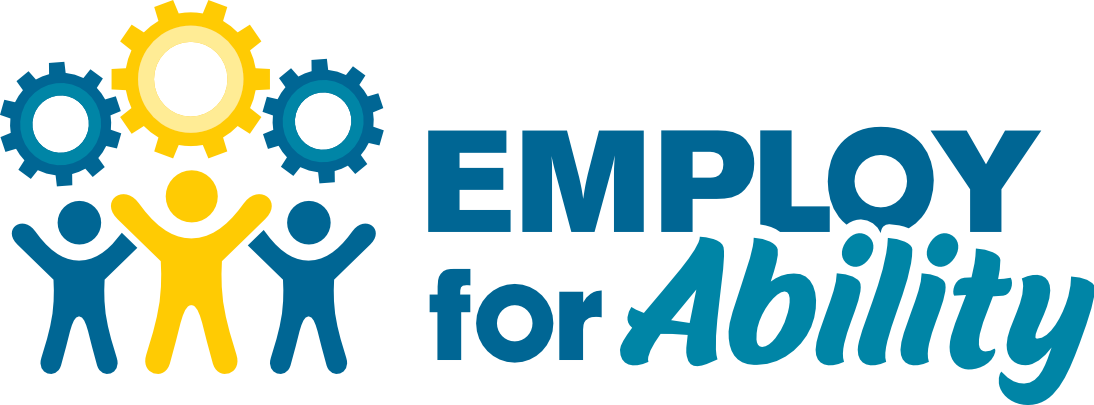Neurodiversity employment
Neurodiversity rates in Australia are growing as the number of young people receive a diagnosis through improved intervention and school inclusion programs. All young people will eventually finish school and transition into adulthood. These school leavers have the same goals, dreams and hopes about the future as we did. However, today school leavers with neurodiversity will experience the highest rates of unemployment compared to any other group of people with disabilities.
Employment rates for people with Autism
In Australia, according to the latest ABS statistics, 40.8% of people of working age (15-64) with autism participate in work (more than 2 hours per week). 53.4% of people with any other disability participate in work and 83.2% of people without a disability participate in work. It is harder to get work if you have autism or neurodiversity than any other disability.
While these stats show a very big problem, one statistic is improving. 35% of young people with autism on finishing school are entering tertiary education. The challenge is how do we improve the employment rate for people with autism and neurodiversity? The education system is improving the educational outcomes for people with autism. It is time for the employment sector to step up and help improve the employment outcomes for this cohort of people that is being left behind. As Dr Paul Shattuck found, as children with autism receive improved levels of support through intervention programs and inclusive education practices, they can achieve higher levels of academic achievement. ANU, UC and CIT in Canberra, as well as many other tertiary education institutions have created specialised support programs for their neurodiverse students. These tailored programs are improving the education outcomes for their students.

Interviews for someone with autism are a modern form of torture
Hiring based on an interview for cultural fit has led to the above statistics on under-employment for people with neurodiversity. Interviews measure a person’s communication and social skills, areas that someone with autism may have difficulty understanding. For someone with autism, an interview can cause debilitating anxiety and more often they will associate interviews with a negative perception of the organisation. Yet autistic people are good workers who are demonstrating amazing skills that an employer needs to be competitive in their markets. Recruitment programs that assess a candidates strengths and job fit, using testing, assessment centres and work experience are having vastly improved outcomes compared to traditional interview methods. With some simple modifications to employment methodologies, awareness training and leadership support, we can improve the employment rate of people with neurodiversity and provide competitive advantages to organisations.
Neurodiversity employment programs are working
Autism employment programs such as those provided by Specialisterne in Government departments (Department of Human Services, Australian Taxation Office, Department of Home Affairs, Australian Bureau of Statistics, Victorian Government) large corporates (Sun Pork, Westpac, IBM, SAP) and technology firms (Seeing Machines) demonstrate that employers are starting to understand that people with autism can be professionals and forge a career rather than working in roles below their education level. Employers need to understand that the pathway to employment for someone with neurodiversity is different to the traditional recruitment model.

Neurodiverse staff add great value
Neurodiversity employment programs need not be just about disability employment. All employees need to demonstrate value, and help the organisation achieves its goals. People with neurodiversity offer competitive advantages over neurotypical employees and they want to contribute to an organisations success by adding value. These include:
- reduced staff turnover
- improved productivity
- hiring neurodiverse staff improves existing staff morale and improves leadership skills
Individuals with neurodiversity often dislike change and may stay in the same role or organisation for longer periods than neurotypical employees if the work and environment are good. People with neurodiversity have a reputation for focus, attention to detail, accuracy and an ability to concentrate for longer periods of time than neurotypical workers. They often do not engage in office politics, banter or socialising, they just want to complete the task allocated. Examples now exist on the programs mentioned above where the neurodiverse staff are outperforming their neurotypical co-workers.
Neurotypical workers are becoming more aware of the social value of supporting people with autism.
Other benefits will be found to existing staff through feeling a sense of pride that their organisation has invested in hiring people with lower employment outcomes. With the incidence of autism diagnosis increasing, many families have a connection to autism. Programs to support neurodiverse workers may also support staff experiencing anxiety, depression and other neurological conditions. Leaders learn how to manage people’s personalities and different ways of thinking. Managers often performance manage someone who is different or difficult. With a small amount of training, managers can dramatically improve their leadership and management skills. Learning how to harness the problem-solving skills of neurodiverse workers and handle the direct way someone may speak or their poor social skills, makes good leadership and business sense. This is inclusion at its simplest level.
Embrace neurodiversity for competitive advantage
With some simple modifications to employment methodologies, awareness training and leadership support, we can improve the employment rate of people with neurodiversity and provide competitive advantages to organisations.
David Smith for Employ for Ability – Linkedin + Facebook
An autism and neurodiversity employment specialist and advocate.
Working for the last 20 years in the recruitment sector coaching and mentoring clients, candidates and staff to reach their potential.

